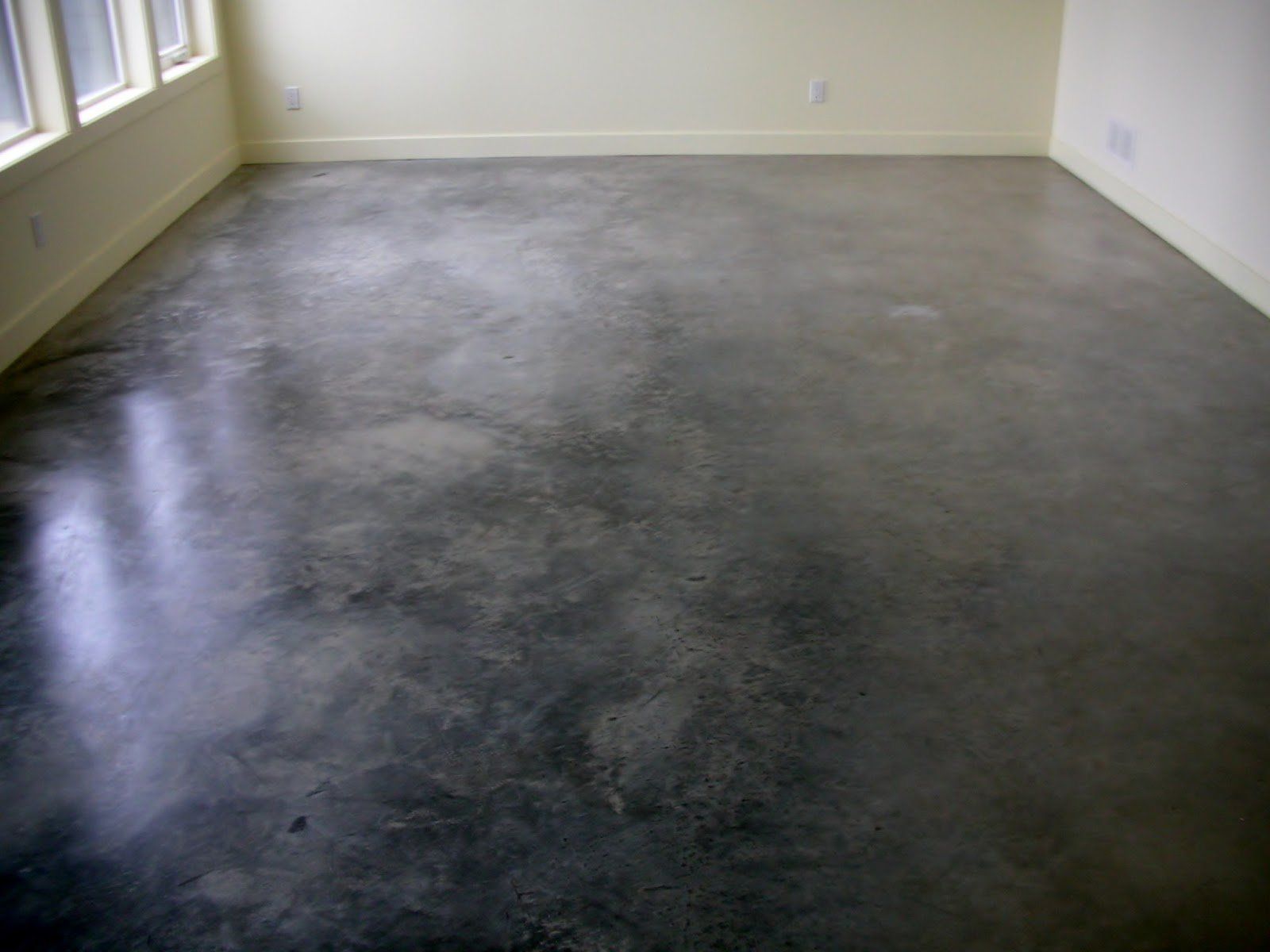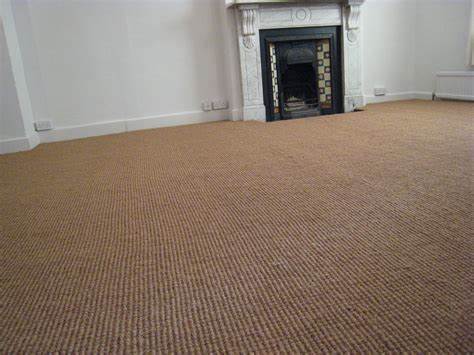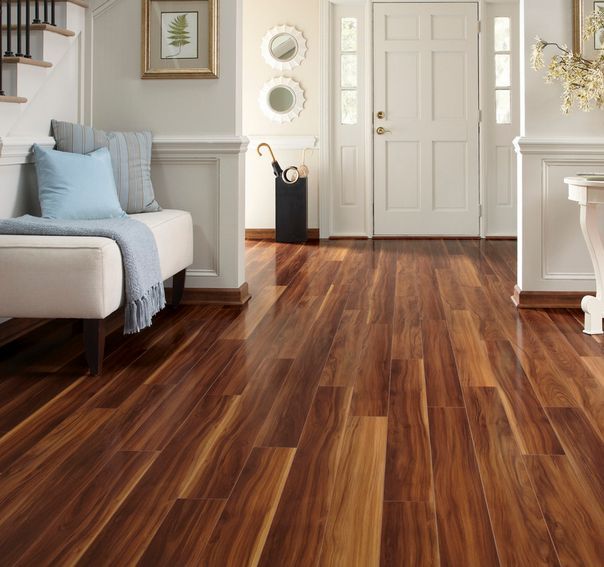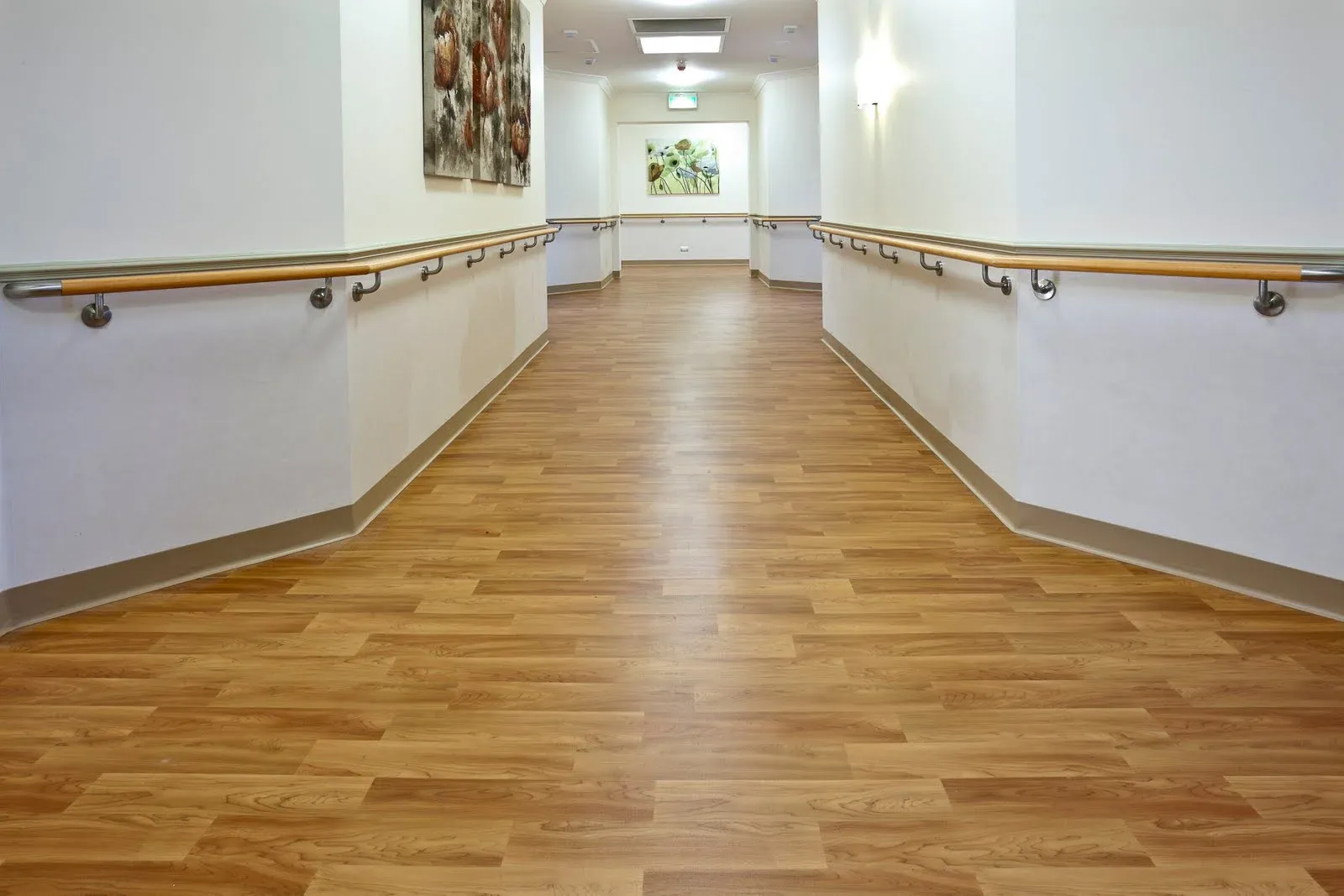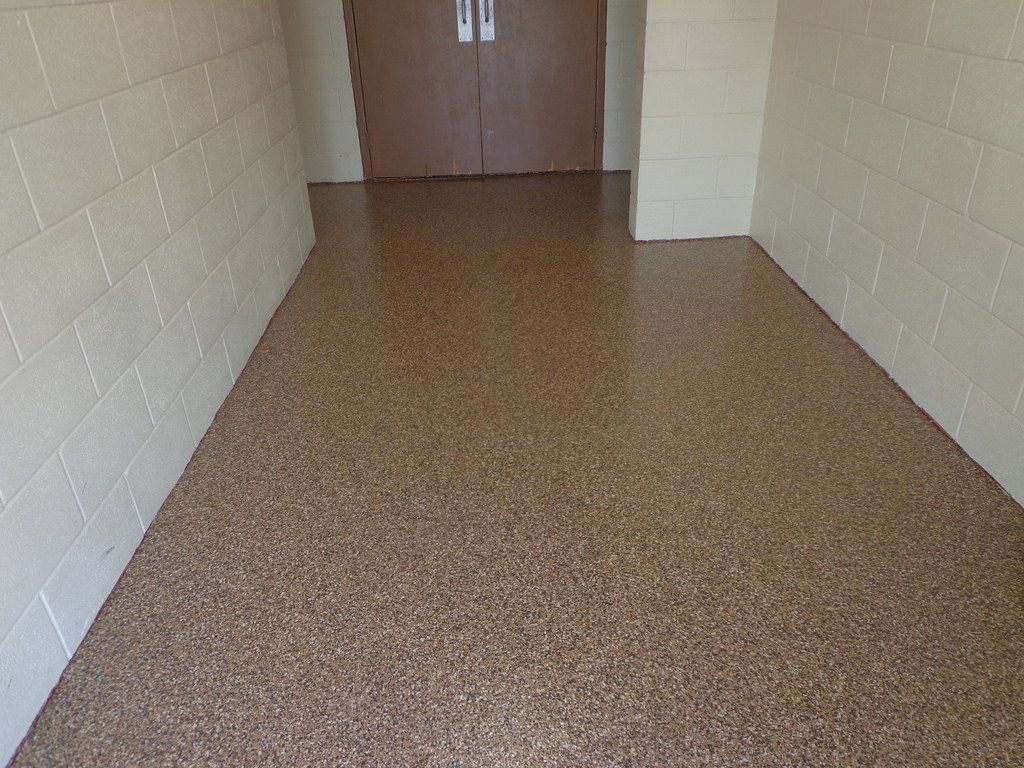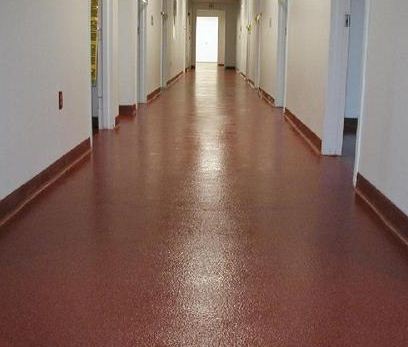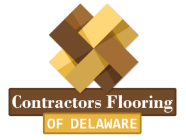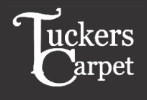Top Flooring Companies in Delaware and Surrounding Areas
Are you thinking of switching to hardwood floors or epoxy floors? Or perhaps, want to book a floor maintenance? Below are the list of the top flooring companies near your area who has all the services you need!
Talk To A Professional NOW!
Fast Response and Great Rates
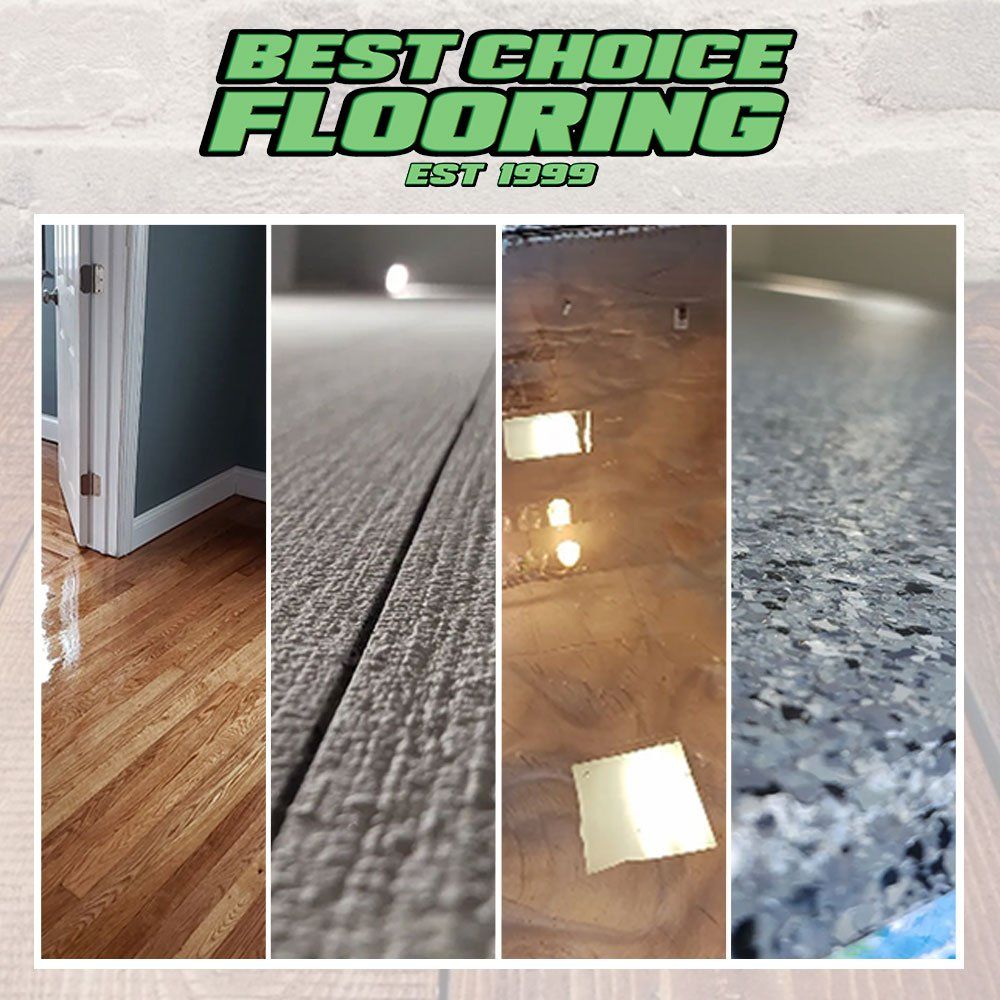
Est. 1999
Best Choice Flooring Company Serving Delaware and Surrounding Areas
"If you are thinking about laying new flooring in your home or business, our company is always the right choice. New flooring is an excellent way to completely transform the look of your home. Not only does the installation raise your property value and look beautiful, and our top-quality materials are also durable and will stand the test of time. Our services include flooring services, floor installation, and floor repair."
Flooring services in Delaware
These are main types of floorings that you can choose from when thinking about replacing your current flooring.
Planks from a single piece of wood are machined to make solid hardwood floors. Solid hardwood floors were initially put perpendicular to wooden support beams of a building known as joists or bearers for structural considerations. It is a preferred choice by many because of how easy it is to clean hardwood floors.
Concrete flooring is made of a composite material called concrete which hardens overtime if mixed with other materials (cement, water, and aggregate). Concrete flooring offers tons of benefits for your house. For instance, it has a high level of strength which lasts for a longtime, its rigid, fire resistant, and very is to maintain.
Epoxy flooring is comprised of multiple layers of a resinous material called epoxy which is applied in the base floor. One of the good qualities of epoxy floor is its high resistance to almost everything - oil, gasoline, transmission fluid, cleansers and more. Epoxy floors are frequently used in garages and within the automotive industry.
Carpet flooring is comprised of woven fiber and is available in many different designs, patterns, and hues. Carpet offers you a non-slip surface, adds additional warmth, and absorbs sound because of its cushioned surface. In addition to being among the most reasonably priced flooring options, most carpets have been treated to be static, stain, and filth resistant, which makes them exceptionally simple to clean and maintain which a carpet cleaning company can vouch for.
Laminate floorings are usually used in LEED-certified facilities because of its durable, hygienic, and easy to maintain qualities. Moreover, laminate flooring is usually waterproof. However, while laminate floorings are cheaper than hardwood floors, it could be very difficult to repair when damaged.
Vinyl floorings can provide you with a hardwood or stone flooring aesthetic without the upkeep. Vinyl is a synthetic polymer used in most offices, schools, hospitals, and even hotel lobbies. Vinyl flooring has a moisture resistant surface which makes it very durable. It is also highly customizable and available in various patterns and colors.
While polyaspartic floorings have been around for a longtime already, only now it is gaining popularity and being used in garage floors. Polyaspartic coatings are commonly used on bridges and piers, and in coating ships or railcars but polyaspartic coatings are now being used in flooring as well. Polyaspartic coatings are similar to polyurethane but it cures faster than both urethanes and epoxies. It can also be applied in varying range of temperature.
Polymer overlay is popularly used in coating and repairing damaged or old concrete floors. Most contractors make use of polymer in concrete floor restoration and bring back its like-new condition whilst saving time and effort. Aside from correcting spalling, cracks, and other forms of surface damage, polymer overlays are used leveling tilted floors and in adding traction to slippery, high-traffic areas.
Everything you need to know about epoxy flooring
Epoxy flooring might not be as common as hardwood flooring, but did you know that epoxy flooring is rising in popularity for many reasons? Epoxy flooring is known for its long-lasting and durable qualities which is why most people choose epoxy flooring for their house, office, and commercial spaces. If you are not that familiar and knowledgeable about epoxy flooring, read on to learn more about epoxy flooring.
What is epoxy flooring?
Epoxy flooring is a kind of flooring that uses multiple layers of epoxy to coat your floor. For instance, epoxy can be directly applied to a concrete floor for a sturdier coat. To do this, resin is mixed with a hardener to form a chemical reaction which results to epoxy which hardens overtime. It is considered epoxy flooring if the coating is at least two millimeters in terms of depth otherwise its considered epoxy floor coating. Aside from its long-lasting and durable quality, epoxy flooring also has a customizable, sustainable, and decorative quality which is why lots of people in Delaware are switching to epoxy floors.
Types of Epoxy Flooring and Where to Apply Them
Self-Leveling Epoxy Floors
This type of epoxy floor is used to apply over concrete floors in any condition, new, old, cracked, or damaged. Once applied, the surface of the concrete floor will have a smooth, durable, and a leveled texture. The good thing about self-leveling epoxy floors is not only it does provide a shiny, seamless look but it is also customizable. It is available in many different colors and suits commercial, industrial, and residential spaces. Where To Use Self-Leveling Epoxy Floors: manufacturing buildings, warehouses, showrooms, commercial garages, kitchens, athletic facilities, and more.
Epoxy Mortar Floors
This type of epoxy floor is considered the most stringent epoxy floor system because it consists of 100% solid epoxy material and graded/quartz sand. Epoxy Mortar Floors are best used for spaces which requires floor to be highly chemically resistant and can withstand heavy pressure. Moreover, epoxy mortar floors may be used to cover cracks before applying another type of epoxy floor. Where To Use Epoxy Mortar Floors: mechanical spaces, warehouses, commercial kitchens, restaurants, garages, manufacturing plants.
Quartz-Filled Epoxy Floor
This type of epoxy floor consists of epoxy polymer resin and stained quartz grains. Quartz epoxy floors have sanitary and slip-resistant properties which are usually used for decorative purposes. Where to Use Quartz-Filled Epoxy Floors: locker rooms, restrooms, schools, cafeterias, lobbies, offices, showrooms, and more.
Anti-Static Epoxy Floors
This type of epoxy floor has a conductive compound which helps reduce ESD (electro-static charge). Anti-static epoxy floors can be used in spaces that contain flammable materials as it helps reduce static hazards in these spaces. Where to Use Anti-Static Epoxy Floors: electronic, chemical, or pharmaceutical manufacturing facilities, healthcare facilities, or any spaces that use flammable gases or liquids that bring a risk of combustible dust buildup.
Epoxy Flake Floor
This type of epoxy floor primarily contains colored flake materials that are inserted in the epoxy for a more vibrant, and colorful look. The addition for flake materials is not just for decorative or aesthetic purposes as it also helps reduce slips and falls. Epoxy flake floors are highly customizable as it has variety of sizes, colors, and textures to choose from. Where To Use Epoxy Flake Floors: locker rooms, sports venues, showrooms, clinics, commercial kitchens, and more.
Advantages and disadvantages of epoxy flooring
Advantages of epoxy floor
Epoxy floors are very easy to maintain. Epoxy floors are resistant to a large number of chemicals, such as solvents and acids. The floors are decorative and have 3D epoxy flooring (which is then treated with a transparent two-component epoxy or polyurethane to give the perfect image depth). Epoxy floors are available in many different colors and designs. It is possible to create a concrete look or to sprinkle the floor with flakes.
Only a small amount of work is interrupted due to the quick application. Epoxy floors are incredibly simple to keep clean. Considering that the floors are seamless. Only a small amount of work is interrupted due to the quick application. Epoxy flooring is incredibly simple to keep clean and the epoxy floor repair also. After all, the flooring is seamless, liquid-tight, and thus simple to maintain, which promotes hygiene.
Disadvantages of epoxy floor
Due to the hardness of epoxy floors, walking causes contact noise. Because of this, houses and offices typically have flexible polyurethane floors. Without underfloor heating an epoxy floor feels somewhat cold like tiled floors. The floor may show waves if the substrate has inconsistencies or fissures. This only occurs if the epoxy floor is unable to fill in cracks that have already formed. The substrate and the floor bond well. Applying epoxy floors solely on flat surfaces is crucial for this reason. It must first be leveled off if the surface is uneven. You can fix uneven concrete surfaces with a thixotropic paste made by HIM that is based on epoxy resin and lightweight additives.
How much does it cost to install epoxy flooring?
$1,447 to $3,006 is a typical price range for epoxy flooring while $2,227 is the national average to install epoxy flooring.
If you're tired of your garage's plain concrete flooring, you might be interested in long-lasting epoxy flooring. Epoxy is a tough and long-lasting finish that will turn dull garage flooring into a gleaming surface. Epoxy garage floor costs range from $1,447 to $3,006, with the national average being $2,227, according to HomeAdvisor. An epoxy floor is durable and resistant to oil, grease, and chemicals, as well as scuffs and scrapes. This garage floor coating is available in a variety of colors and decorative flake blends. Metallic and custom colors of epoxy are also available.
Labor costs between $1 and $7 per square foot, with equipment and materials costing between $2 and $5 per square foot. The cost of epoxy flooring, including installation, ranges between $3 and $12 per square foot. Solid epoxy can be three times as expensive as water-based epoxy. Premier solid epoxy flooring will cost a premium for homeowners with a large garage; however, solid epoxy may be an affordable option if used in a small space because it requires less maintenance and outlasts the water-based option. The overall cost of the project is determined by the square footage of the area, the number of coats required to fully protect the floor, and the amount of preparation required prior to applying the epoxy.
Epoxy flooring installation
Because they are so flexible and strong, epoxy flooring is a fantastic alternative for your home. They are available in a variety of colors to match your style and home decoration and may be put over practically any surface. If properly maintained, these epoxy floor coverings will last for decades! Your home can benefit greatly from the elegance and quality of epoxy floors can bring. This flooring is best suited for high-activity areas like bathrooms, kitchens, and other places where spills and messes may be wiped up more quickly. Your current floors can benefit from an additional layer of defense against water damage brought on by stains and foot activity with the proper epoxy floor coating. Your outdated wooden flooring, commonly referred to as a hardwood floor, will need to be taken out and replaced with epoxy flooring. To make the transition smoother, you will also get an installation kit for epoxy flooring. You won't need to do a thing—we'll send in our specialists to measure and install the new epoxy floors!
Epoxy flooring maintenance
Our epoxy flooring repair and maintenance services keep your floors looking great, with the added benefit of increased water and oil resistance. Epoxy flooring is a good choice for epoxy floor garages, epoxy floor basements, bathrooms, kitchens, retail establishments flooring, retail malls flooring, nightclubs flooring, hospitals flooring, assisted living homes flooring, veterinary clinics flooring, medical facilities flooring, automobile dealerships flooring, auto shops flooring, restaurants flooring, commercial kitchens flooring, fitness centers flooring, locker rooms flooring, public bathrooms flooring, buildings for public safety flooring, educational resources flooring. Epoxy floors offer excellent sound control, and they are easy to keep clean.
Repairing a damaged epoxy floor
1. Cut the damaged area of your epoxy floor squarely.
2. Fill up the gaps with epoxy and apply a new coat.
3. Contact epoxy floor specialists to avoid more damage.
If you have epoxy flooring, you might be aware of how durable and appealing it is. An epoxy floor is not easily damaged or dirty, and it always looks gorgeous as long as it is clean. This is why many people prefer epoxy flooring for their Epoxy Floor Garage, Epoxy Floor For Basement, Assisted living facilities flooring, Bathrooms flooring, Kitchens flooring, Retail establishments flooring, Retail Malls flooring, Nightclubs flooring, Hospitals flooring, Veterinary clinics flooring, Medical Facilities flooring, Automobile Dealerships flooring, Auto shops flooring, Restaurants flooring, Commercial Kitchens flooring, Fitness centers flooring, Locker Rooms flooring, Automobile Dealerships flooring, Auto shops flooring, Restaurants flooring, Commercial Kitchens flooring.
Maintenance plan for epoxy flooring
Daily Maintenance. Epoxy flooring requires minor maintenance daily. They don't require much, but a daily sweep and mop should be included in the cleaning schedule. By cleaning any little particles, you will keep the floor scratch-free and prevent wear and strain. If your facility employs harsh or erosive chemicals, any spills should be cleaned up as quickly as feasible. Certain chemicals, if not cleaned up promptly, will begin to erode and irreversibly destroy the floor.
Why should you hire experienced epoxy flooring contractors?
Flooring Companies Provide Quality and Convenient Services.
Epoxy floor installation by a professional has many benefits compared to DIY which also has its own downsides. DIY can lead to poorly done floor installation which will cost you more in the long run. Flooring companies specialized in services which include resin flooring among other services can provide quality service fixing installations.
Flooring Companies are Professional Cleaning Experts
Getting a DIY epoxy flooring can go wrong, especially if you are a beginner as it can cause more damage and additional expenses due to lack of expertise.
Some designs are also complicated, requiring you to follow patterns for an even shape and professional look. Estimating the right measurements for the even arrangement of floorboards and panels require an expert who understands and knows how to set the right angles for fitting the cut wood. A room that has panels installed correctly with asymmetrical shapes and designs is more appealing compared to a crooked design.
Relax and Let Flooring Companies Do The Job For You
Certified flooring professionals will use their skills and experience to create the look that you want. They are also insured for any damages that might occur. Hiring an expert in flooring gives you a chance with yourself and some peace while someone else does the job. Most people have a busy schedule and even for those with some time off, sometimes DIY is exhausting.
Flooring Companies Offer Assistance in Discarding Old Floor
After installing a new floor, many homeowners are left with old floors that they have no idea where to dispose of. Professional flooring companies can easily dispose of your old floor after installing the new one getting rid of the waste that accumulated during the construction.
You'll Get A Professional Flooring Point Of View From Flooring Companies
It is always recommended to seek professional help when one has a tough choice to make. A professional contractor can help you in choosing the best floor depending on your needs and preferences. Inform the contractor what you expect so that you can decide on the best choice. Professional quality work that is durable among other factors should be taken into consideration.
Find a Licensed Flooring Company with Good Ratings for a Perfect Epoxy Floor Installation Service
Epoxy flooring can be difficult, especially when one is running out of options due to the various styles, designs, and flooring furnishings available in the market.
Everything you need to know about hardwood
flooring
When you think about flooring, hardwood floors might be one of the things that will pop up in your head. Its because out of all types of flooring, hardwood floors are the most sought out flooring in Delaware. Why? You might ask. Hardwood floors give out a traditional vibe for your home, office, or other spaces. Many families aspire to have their floors made of hardwood because of its high-quality material that lasts a longtime. It also looks so beautiful and suits all kinds of spaces regardless of size or design.
Why are hardwood floors so special in Delaware?
From the sort of wood used to the method by which the wood is cut and constructed; hardwood floors are available in a wide range of styles. Oak, pine, maple, fir, birch, cherry, beech, and even bamboo are common hardwood floor choices. The wood is either cut into tongue-in-groove strips, tongue-in-groove planks, or wood tile, which is set out in geometric designs and the epoxy floor is customizable, allowing you to add colors, texture, and even depth to the layers of epoxy resin.
Epoxy vs. Hardwood
There are many differences between an epoxy floor and a hardwood floor, but one of the most obvious ones is that an epoxy floor costs more and is easier to install than a hardwood floor. Unlike hardwood, Delaware epoxy flooring is water-resistant, making it perfect for use in bathrooms and kitchens. In addition, unlike tile flooring, epoxy flooring does not easily fracture or break when heavy objects are dropped on it.
Pros and cons of hardwood floors that you should know
10 advantages of hardwood flooring
• A long-term investment
• Variety
• Quality that is ageless
• Easy maintenance and hygiene
• Healthy air quality at home
• Suitable and safe for babies and children
• Good acoustics
• Improves the value of your home
• Organic
• Easy installation
10 disadvantages of hardwood flooring
• Cost
• Prone to termite attack
• Avoid water contact
• Scratching
• Limited Usage
• Cupping
• Crowning
• Molds
• Noise
• High Maintenance
Median price to install hardwood flooring
When shopping for hardwood flooring, knowing the various options and how they affect the price will help you stay within your budget. The average cost of hardwood flooring ranges from $2,493 to $6,754, with a national average of $4,540.
Any room can benefit from the texture and warmth provided by hardwood flooring. When estimating hardwood flooring cost, several factors come into play, and the typical cost ranges from $2,493 to $6,754, with the national average being $4,540, or roughly $8 per square foot. Most flooring professionals charge $6 to $12 per square foot for materials, with higher-end jobs costing $13 to $25 or more. On average, materials will account for 50 to 75 percent of your budget, with labor accounting for the remainder. The cost of hardwood flooring varies depending on the type of wood, the width of the planks, the stain, the adhesive, and the style. Some hardwood flooring professionals include the removal of old wood flooring or carpeting in the price of installation and trim, whereas others may charge a separate fee for that service. Installing wood flooring not only improves the overall appearance of the room, but also increases its resale value and would be a very good marketing strategy.
Installation of hardwood floors
One of the most maintenance-intensive wood floors you can have is hardwood flooring installation. The main cause of this is that solid maple or oak floors are much heavier than hardwood flooring, and hardwood flooring is far more sensitive to changes in humidity and temperature. The strongest, most long-lasting, and most resilient kind of wood flooring you can put in your house or place of business is hardwood flooring. You may be sure that your hardwood floor will last for many years if you choose a commercial-grade installation procedure. A unique and compact combination, our epoxy flooring to hardwood floors. The device, which comes in a variety of designs, is very simple to set up, waterproof, and strong.
Repair and maintenance of hardwood floors
Even the greatest wood floors may be damaged. Hardwood flooring, by definition, should be quite hard. However, it is rather soft and prone to damage such as scratches, gouges, and discoloration when compared to other materials such as tile, stone, and laminate. Surface scratches and gouges are an unavoidable byproduct of regular wear and tear. To address these issues, you must invest in maintaining your hardwood floors. A lot of flooring companies in Delaware are experts in hardwood floor repair and maintenance. They can repair and refinish all types of wood floors to their original finish. They offer a holistic solution that results in a high-quality and valuable end product. So, if you’re not an expert in hardwood floor maintenance, you can always call a flooring company in Delaware to do it for you.
Caring for your hardwood floors
Use furniture pads, sweep, or dust your floor daily, vacuum once a week, and refinish it every three to five years. You should also use a wood floor cleaner monthly. Knowing the basics of the proper ways to take care of your hardwood floors is very important because not all the time hardwood contractors or a construction company specializing on flooring would be available to fix these floor issues. If help is not available, you'd be able to do it on your own.
"Investing in floor repair is a good idea because it will help avoid further damage in the future."
Say goodbye to your flooring problems: A guide to floor repairs
Reasons Why You Need Floor Repairs
During the winter season, heavy snows and blizzard can cause damage to your floors. Your flooring expands due to the moisture content which can pose a problem immediately. In addition to these reasons, other factors beyond your control can cause concrete floor damage: sloppy design, poorly applied flooring, problems with your foundation, and many other unforeseen events can produce cracks in your floor. An uneven floor is most frequently caused by an excess of moisture or water damage. The source of the water may be a leaky pipe that is concealed within a wall or groundwater. A structure with insufficient drainage is susceptible to moisture damage to the foundation.
Types of Floor Repairs
Hardwood flooring, epoxy flooring, and other materials are among the several kinds of floor repairs. The thickness of some of them varies from more than an inch to as thin as a sheet of paper for others. Each variety has comparable practical qualities and degrees of durability, although their levels of adhesion vary based on the materials employed in their product prior to installation.
What Are The Common Tools Used In Repairing Hardwood And Epoxy Floors?
Tools for Hardwood Floors
As previously stated, much repair work necessitates the use of the same tools. Because the most common tools used to repair a hardwood floor are nails, hammers, screws, screwdrivers, sandpaper, stain, and urethane finishes for epoxy floor ideas . When you figure out what kind of repair you're doing, the uniqueness of additional tools comes into play.
Touch-Up Tools
These are frequently used to repair or remove discolorations, minor scratches, or marks from hardwood floors. The kits include stain markers, putty sticks, and, in some cases, urethane. If you're just covering up a cool scratch on this floor, epoxy pieces can fill it in. After matching the area to the rest of the floor with stain markers, the job is finished with a urethane finish over the area.
Wood Filler Tools
They're useful for hiding nail holes, scratches, dents, and gaps in floors. These usually smaller tools only include a variety of putty sticks in pre-stained colors for easy matching to your hardwood floor and a These are usually smaller tools that only include a variety of putty sticks in pre-stained colors easy matching to your hardwood floor and an epoxy floor cleaner.
Pre-Made Floor Repair Tools
They are epoxy floor ideas and epoxy flooring expensive than a compared hardwood floors. We have expensive tools to make more difficult tasks such as board removal, filling large gaps, and patching a section of hardwood floor, flooring repair tools are used. These repair tools include drill bits, dowel rods, a dowel punch, adhesives, metal applicators, and, in some cases, wood shims, together with the same items found in a touch-up or wood filler tool. Many of the smaller and more basic tools are now including shims, epoxy floor, or scraper blades. This is because many simple repairs may necessitate the use of unknown materials until you begin working on them.
Tools for Epoxy Floors
One of your favorite surfaces is your epoxy floor in the house. It is sturdy, simple to clean epoxy floor cleaner and maintain, and everyone comments on how nice it looks. This is why it is critical that you understand how to deal with any chipping or cracking that may occur. Follow these epoxy floor repair steps to keep your floor looking as good as the day it was installed. If the chipping or cracking is minor, simply fill in the gaps with a ground compound. With a fresh mortar, trowel in the material until it fills the crack or chip and overflows out the top. After that, use the trowel to smooth the surface and remove any excess mortar. This will repair your epoxy floor and keep it from deteriorating further. Allow at least 60 days for these repairs to cure before applying a new epoxy floor coating. Once your epoxy floor patch has cured properly, epoxy floor cleaning may be done removing dirt and oil, then buff the floor with an 80-grit sanding screen. Vacuum and wipe the floor cleaner before applying the epoxy floor paint. Apply a clear epoxy finish after 12 to 24 hours.
The Cost of Floor Repairs Depends On Damage or Severity
Every day, your floors are subjected to a great deal of wear and tear. And, while normal wear and tear is to be expected, it is possible for minor to significant damage to occur that can destroy your floors. Depending on the kind of flooring, your floor may experience a variety of damage, ranging from gouges and water damage to sagging and buckling. Flooring repairs, regardless of the type of damage, are often less expensive when completed early since many concerns can develop with time, increasing your total expenses.
The average wage for floor restoration ranges between $500 and $3,000, with the majority of customers spending approximately $1,600 to fix 200 square feet of somewhat damaged hardwood flooring The minimal cost of this job is $100 to patch a tiny tear in carpeting. The high cost of replacing 5 rotten floor joists to repair and stabilize a collapsing floor is $10,000.
The Cost of Flooring Repair
The national average is $1,600.
The average price range is $500-$3,000.
Low-end $100
High-end $10,000
The Importance of Floor Repair
Despite how strong, durable, or damage resistant your flooring is, there will still come a time that they will lose their quality and eventually crack, or become severely damaged due to accidents, and wear and tear. This is where floor repair comes in handy. Sometimes, our floors just need to be fixed and maintained and they'll be back in shape as if its brand new. So, before thinking of replacing your floor, you might want to consider repairing it first.
Overall, floor repair is cheaper than floor replacement or new floor installation. In floor repair, you only need to fix the damaged areas of your floors. New floors will cost more since you will need to buy new floor materials and pay for the floor contractor as well who will install it for you. Aside from being cost efficient, you also help save the environment by not using more resources, especially if your floors are made of hardwood.
As mentioned earlier, flooring replacement is not always the answer because there are various types of floor repairs that is available to you. If you find your floor dull looking, you can opt for varnishing. If you want to change the design or redecorate your floors, staining is an available option. Or, if your slats are scratched or discolored, you can opt for a slat replacement. The point is that the problems or issues you have with your floor can be fixed through floor repairs. The possibility is endless.
Finally, investing in floor repair is a good idea because it will help avoid further damage in the future. The earlier you address the damages in your floor, the longer your floor will remain in good condition. At first, floor repairs might cost you a fortune but if you ignore or overlook the damage in your floors, a time will come that floor repairs won't be able help you restore your floors and will be asked to replace your floor instead. And, that will cost more money to you.
Why Hire A Professional Flooring Company
Home improvement stores are filled with flooring solutions that claim to be simple enough for homeowners to install themselves. If regular people can makeover their homes on "Renovation Rescue," why shouldn't you pick up a hammer and try it yourself? However, experts advise us not to make rash decisions. Instead, ask yourself the following questions to determine whether you should hire a professional flooring contractor.
What is your level of experience?
Reality show stars may make DIY projects such as home cleaning, floor cleaning, or even car wash appear simple, but these home improvement projects are rarely as simple as they appear. Consider your own experience to see if you could install your own floor.
Have you ever used a power saws, nail guns, or sanders? If you feel comfortable with these tools in your hands, you might be able to install your floor. However, knowing how to use these tools is only the beginning. Consider the other home improvement projects you've completed. Were they difficult or simple tasks? Did you find the work easy or difficult to complete? Did you face any difficulties while working on these projects, and were you able to solve them? Were you satisfied with your work? Do you know what you would do differently next time if you weren't satisfied?
Inexperienced DIYers don't just risk ruining their floors. They may also sustain serious injuries. According to the Centers for Disease Control, an increase in injuries from power saws and nail guns since the early 2000s is most likely due to an increase in DIY projects. Every year, table saws, chainsaws, and circular saws cause over 74,500 injuries, including over 4,000 amputations. Every year in the United States, nail guns cause nearly 9,100 injuries. Power tools make DIYers' jobs easier, but if you're not familiar with them, it might not be worth the risk.
If you are inexperienced, you will take much longer than a professional to install your floor. This extra time, as well as the disruption an ongoing project will cause in your home, should be considered when making your decision. While you may be working in the dark, a professional contractor will know exactly how long the job will take. A good contractor will provide you with a detailed process schedule so that you can adequately prepare for the project and its impact on your home. During extensive flooring work, for example, you may decide to stay with friends or family members.
While practical DIY experience is important, so is material experience. If you haven't chosen building materials in a long time, you're likely to be overwhelmed by the options. With so many options available, each with their own set of advantages and disadvantages, selecting a flooring material with confidence can be difficult. Working with a professional contractor simplifies the selection process significantly. Your contractor will listen to what you like and how you intend to use your floor before directing you to the best flooring materials for your needs.
Flooring installation is a critical task that will significantly improve the appearance of your room. You should avoid experimenting with it. Be truthful about your abilities and whether you're truly qualified for the job.
How challenging is your project?
Every flooring job has its unique quirks. Are you capable of dealing with them? Examine your project critically to determine whether it is something you can realistically manage.
The flooring material you choose will determine the complexity of the work. The installation of wide hardwood floorboards is relatively simple, whereas carpeting is more difficult. Stone plastic composite (SPC) flooring is easy to install because it can be laid over uneven subfloors. Hardwood and laminate, on the other hand, require a smooth, even subfloor. Depending on the room, working with these materials may make your job a little more difficult.
The room's size and shape will also be factors. Installing flooring in a small room is much easier than installing flooring in a much larger space. A simple square or rectangular room will be far easier to work with than an irregularly shaped room.
Before you begin, pay attention to any red flags you notice. Professional contractors have the necessary experience to deal with the challenges of your specific job and deliver the best results. In the unlikely event that something goes wrong, your certified contractor's liability insurance will cover any damages.
What Will You Do With the Old Floor?
When you replace a floor in your home, you must dispose of the old flooring material. The majority of flooring materials can be disposed of with regular household waste. However, after a major flooring project, you're unlikely to have much room in your trash cans for anything else. You could take them to the landfill, but dumping fees can be prohibitively expensive. Transporting your old flooring to the landfill may be difficult if you don't have a pickup truck or a trailer.
In some communities, burning old flooring is an option, but it will not work for many flooring materials. While laminates contain a high percentage of wood, their aluminum oxide coating will emit noxious chemicals into the atmosphere if exposed to flames. If you are unfamiliar with your old flooring materials, as is likely if you have recently moved into an established home, you could easily make the wrong decision. If you misjudge your old materials and attempt to burn the wrong thing, you may face a fine. Fire permits are also required in some areas.
Hiring a professional contractor may be a wise decision if you're unsure what to do with your old floor. Your contractor will remove the old flooring, taking one less thing off your plate.
While more Americans are doing home improvement projects, there's no reason you should follow suit. You will benefit from the experience of a professional flooring contractor if you are inexperienced or have a complicated flooring job. The services of an experienced flooring professional will save you time and ensure that your new floor looks its best.
The following are the most significant disadvantages of DIY flooring installation:
Do-It-Yourself Floor Installation Will Take More Time to Install
What is the value of your time? Since a professional crew can complete the job in about half the time or less. They clearly have more experience and use better tools and equipment.
You may believe you are not in a hurry, but extra time may cost you if the project is part of a larger renovation or if it causes you to miss your move-in date.
Do-It-Yourself Flooring Mistakes Will Cause Problems Later On
Have you ever started a DIY project only to realize halfway through that you skipped a step or didn't plan well? Unlike knitting, you cannot always undo your work and begin again.
Installing vinyl or laminate, for example, can go horribly wrong if the sub-surface is not prepared, the grain/pattern is not planned out, or the plank alignment is skewed. These things can cause problems that will need to be fixed later.
Professional contractors plan ahead of time and understand how to work around irregular shapes, corners, and doorways. They also understand the best techniques for various types of flooring and the quirks of specific brands.
Do-It-Yourself Flooring May Result in Disappointing Outcome
While it is possible to do a good DIY job with laminate planks and certain types of flooring, there is still a chance that the end result will be less than satisfactory.
Older homes or those with unusual features can present difficulties that skew the results. You might align planks with one wall, for example, and not notice the plank alignment until you're finished.
When you move on to the rest of the house and the hallways, these problems may worsen. Transitioning between rooms and maintaining consistency throughout is a difficult task, and we've seen plenty of bad examples.
Do-It-Yourself Flooring Have No Warranty
The warranty is one of the most important advantages of purchasing high-quality flooring. However, if you do not use professionals, a 25-year or lifetime warranty may be void.
Yes, some manufacturers state that the flooring must be installed by a professional in order to be warrantied.
This is one of the best reasons, because some brands have raised the bar on warranty coverage, which can save you money years later.
"Professional flooring services can complete the installation faster and with fewer mistakes, saving you time and money."
So, you decided to replace your flooring: A guide to floor installation
What is flooring installation?
Flooring installation is the process of installing new set of flooring (of any type) to your floor by means of nailing, stapling, gluing, and/or floating. There could be many reasons as to why you are considering floor installation. For example, if you want to replace your old flooring, you can get both floor replacement and floor installation services. Maybe, you are looking into upgrading your flooring by switching to a different type of flooring or simply replacing your severely damaged floors which no amount of floor repairing can save. If that's the case, you should be familiar with the types and process of flooring installation, how much flooring installation can cost, and most especially if you should do it by yourself or hire a professional flooring company instead. But before worrying about these, you should first focus on preparing your house (or any place) before the floor installation starts.
Preparations you need to do before doing floor installation
So, you’ve finally decided to get a flooring installation service. It is important that the area must be prepped and ready for floor installation beforehand. To make it easier for the flooring installer and avoid mistakes, you need to move around your furniture to avoid breaking or damaging them during the installation. This will also make space for them to work on your floors. Here’s a checklist of what you can do with the furniture (and other things in the area):
• Take away fragile items from the walls, such as glass picture frames and paintings, and clear the cupboards.
• Take down blinds and curtains that installers might touch.
• Take goods out of the storage spaces and closets.
• Find out who is transporting the furniture and appliances.
• Find out who is taking out the old flooring and subfloor.
• Determine whether the height of the floor will prohibit your doors from opening fully.
• Confirm the recommended temperature for flooring installation.
• Prior to the installation arriving, clean the subfloors (you might want to try power washing your subfloors in preparation for the new flooring)
Types of flooring: Choosing the type of flooring you need and right for you (Pros and Cons)
Our great flooring guide walks you through all the options for the best flooring for your home, including pros and cons and basic pricing information.
Hardwood Flooring
There are two types of hardwood flooring: solid wood flooring, which is made of a single solid piece of wood, and engineered wood flooring, which is made of a thin veneer of real wood bonded to layers of structural plywood. Both types are available in up to fifty different species, with oak, ash, maple, and walnut being some of the most popular.
⦁ Pros: Hardwood floor installers' enduring appeal can be attributed to their warmth and beauty. Because the material can be sanded and refinished multiple times (especially solid wood versions), a well-maintained hardwood floor can last for decades, if not centuries.
⦁ Cons: The most significant disadvantage is the hardwood floor installation cost. Wood flooring is the most expensive, even though some species are less expensive than others. It is also prone to dents and scratches, and solid flooring, in particular, expands and contracts in response to changes in humidity levels, resulting in cracks, splinters, and squeaky boards (engineered flooring does much better with moisture, making it suitable for kitchens and basements).
How much is hardwood floor installation?
Cost: Solid wood flooring, $5 to $10 per square foot, installed; Engineered wood flooring, $4 to $9 per square foot, installed and it depended on services, not exact prices.
Laminate Flooring
Laminate is another engineered product, but instead of a wood veneer on top, it uses a photo of wood (or stone, or any other material) with a protective plastic coating. The substrate of laminate flooring is typically dense fiberboard.
⦁ Pros: Because of the plastic topcoat's resistance to scratches and dents, laminate is one of the most durable flooring options. It's also one of the least expensive, and it's frequently available as a DIY-friendly "floating" floor system, with planks that snap together rather than being nailed or glued down.
⦁ Cons: Most people will not confuse laminate flooring with real wood or stone when compared to vinyl hardwood flooring installation. It has a plastic feel and sound underfoot, and the repetition of patterns can reveal its forgery. Laminate can indeed be refinished, so it is not a fixed floor. Furthermore, the use of formaldehyde and other chemicals in the manufacturing process makes it a less environmentally friendly and healthy option.
How much is laminate floor installation?
Cost: $3 to $7 per square foot
Vinyl Flooring
Vinyl hardwood flooring installation, also known as resilient flooring, is the fastest-growing flooring category. It ranges from low-cost, do-it-yourself peel-and-stick tiles to luxury vinyl tile (or LVT) that has multiple layers, including a design layer with a high-definition printed image, a durable top layer, and several cushion layers.
⦁ Pros: Vinyl flooring installation is very cheap. All vinyl is stain, scratch, and dent resistant, in addition to being waterproof, making it suitable for dwellings and bathrooms. Installation is simple, especially for epoxy floors and floating planks. LVT is a thick, sturdy tile that has the look and feel of real wood. In fact, our product experts frequently have difficulty distinguishing LVT from solid wood in tests.
⦁ Cons: Even though the patterns and color options have improved, laminate flooring is still a far cry from real wood or stone, and it will never satisfy purists. It cannot be refinished, so once it begins to wear out, the only option is to replace it entirely. Laminate flooring is also surprisingly costly, frequently rivaling the cost of real wood.
How much is Vinyl Hardwood Flooring Installation?
Cost: $2 to $6 per square foot, installed.
Carpet Flooring
Despite losing market share to resilient flooring, carpet remains the best flooring category for Delaware flooring. Most carpet sold by flooring companies in Delaware is tufted, with small, usually nylon fibers poking up through a polyurethane backing. Then there's woven carpet, which is more common in Europe and is made by weaving lengths of yarn, usually made of wool. Tumbled carpet is several times more expensive than woven carpet.
⦁ Pros: Carpet is the most comfortable and cost-effective flooring material, and it comes in a variety of colors and patterns. It is simple to install and maintain, requiring only routine vacuuming. Stain-resistant versions are even easier to clean.
⦁ Cons: Carpet is the most comfortable and cost-effective flooring material, and it comes in a variety of colors and patterns. It is simple to install and maintain, requiring only routine vacuuming. Stain-resistant versions are even easier to clean.
How much is Carpet Flooring Installation?
Cost: $3 to $10 per square foot, installed.
Concrete Flooring
This basic building material has been grasped by high-end builders and designers as a fashionable material for flooring and kitchen counters. A poured-in-place hardwood floor can be either the expected shade of institutional gray or dyed. It can also take on various surface treatments, including acid stains and rubber-stamp stencils, to create a really unique impression.
⦁ Pros: Besides their beauty, concrete floors are durable and simple to maintain if properly sealed upon installation. Because the material conducts heat well, concrete floors are an excellent choice for radiant heating, in which hot water tubes are embedded in the floor during the installation process.
⦁ Cons: Concrete floors are expensive and require skilled installation because they are essentially custom products. To avoid discoloration, the material is incredibly unforgiving and must be cleaned multiple times every year or so.
How much is Concrete Flooring Installation?
Cost: $3 to $8 per square foot, installed.
How much does it cost to avail a flooring installation service?
Installing new flooring in your home is one of the most effective ways to boost its market value which is important if you're interested in listing your house in the real estate market in the near future. But it's also a terrific way to quickly transform your living area from drab to stunning. When it comes to flooring installation, it's crucial to understand that it's not an easy do-it-yourself project. Because you'll almost certainly need to employ a contractor or flooring business for this endeavor, knowing how much it could cost is critical. Flooring can range in price from $1,500 to $4,500, with an average cost of around $3,000 to cover a 500-square-foot space.
The Process of Flooring Installation
Phase 1: Floor preparation
The first step is to clean your work space, whether you're laying carpet or installing tiles. For any installation to be successful, the substrate must be clean, dry, and flat. Making the right decision the first time can also help you avoid time and money wasted on repairs. Prior to adding hard surfaces, the floor should be thoroughly prepared by being leveled, sealed, and cleaned.
Phase 2: Floor installation
You can start laying down the flooring right away if you have chosen the right kind. You should ask a flooring contractor for help if you run into any problems. The process is rather simple if you adhere to the installation instructions for the particular type of floor you have.
Phase 3: The Finishing
Even a floor that was improperly placed can look nice with the right T-molding, quarter round, base baseboards, and finishing techniques. You may need to modify your trim to fit your application during this part of your floor installation, so use your imagination.
Final Flooring Tip
Consider using construction adhesive on the bottom and hot-melt glue on the sides to adhere the molding to the surface and keep it in place while the construction adhesive cures if you are unable to nail the molding to the surface. This will help to reduce any delays with your flooring project and expensive accidents brought on by individuals tripping over the molding before it has completely bonded to the surface.
Why Hire A Professional Flooring Company To Do Your Floor Installation
Professional flooring services can complete the installation faster and with fewer mistakes, saving you time and money. Quality Work and Materials: a professional will not only replace your flooring but will also advise you on the best quality materials to use. Doing the installation without any experience can also lead to mistakes, like getting the wrong measurements, and not having enough material. Mistakes in installation can cost you a lot.
FAQs about Delaware Flooring Companies
These are the answers to the frequently asked questions about flooring companies asked by people in Delaware.




